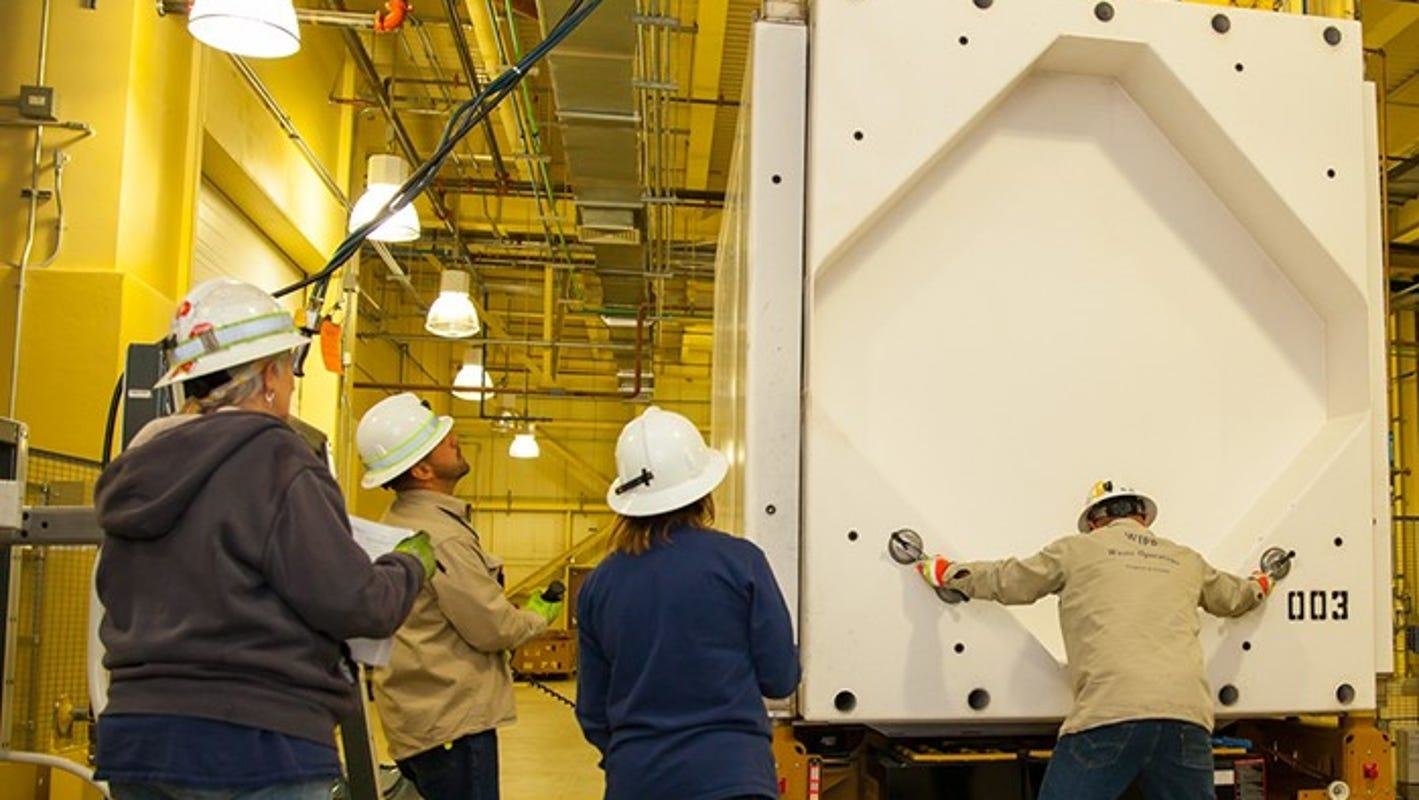US to pay SC $600M for nuclear dumping
9.5 tons of toxic waste to be removed by 2037
By Jerry Bellune
JerryBellune@yahoo.com
Federal officials will pay $600 million to the state to settle a nuclear waste lawsuit.
The Department of Energy agreed to remove the remaining …
This item is available in full to subscribers.
Subscribe to continue reading. Already a subscriber? Sign in
Get 50% of all subscriptions for a limited time. Subscribe today.
Please log in to continueNeed an account?
|
US to pay SC $600M for nuclear dumping
9.5 tons of toxic waste to be removed by 2037
By Jerry Bellune
JerryBellune@yahoo.com
Federal officials will pay $600 million to the state to settle a nuclear waste lawsuit.
The Department of Energy agreed to remove the remaining 9.5 metric tons of weapons-grade plutonium at the Savannah River Site.
Plutonium-removal plans have been anticipated for years at the site 45 minutes from Lexington.
Many SRS workers live in and commute there from Lexington County.
DOE will pay $600 million immediately and remains obligated to remove the plutonium by 2037.
SC Attorney General Alan Wilson said, "It is important that the people know of our long-term commitment to preventing South Carolina from becoming a dumping ground for nuclear waste.”
In the agreement, DOE has 16.5 years to remove the remaining plutonium.
Otherwise, monetary penalties will be re-instated and the Department will be subject to additional litigation.
Wilson told the Chronicle it took 19 months for DOE to move another ton of the toxic waste earlier.
Savannah River Site Watch Director Tom Clements said, "The settlement does absolutely nothing to speed the clean-up of nuclear waste or obligate DOE to come up with a comprehensive plan for plutonium management.
"Now, with the looming possibility that much more plutonium could come into South Carolina for processing as waste or for production of nuclear weapons, DOE's lack of a plutonium-management plan could mean more plutonium will be stranded here."
The settlement ends a highly contentious 6-year battle that threatened to paralyze the industrial complex and pit the state against Washington for decades.
“This is the single largest settlement in South Carolina’s history," Wilson said.
Wilson said he did not know where DOE would move the waste but it may be New Mexico.
The Yucca Mountain Depository in Nevada was closed by former Senate Majority Leader Harry Reid.
"The money could not come at a better time," Wilson said, "as our state government and economy work to overcome the revenue shortfalls caused by the covid-19 pandemic.”
The attorney general told the Chronicle he had hired 2 law firms to work on the 6 years of negotiations.
They will divide a 12.5% legal fee of $75 million.
When the Chronicle asked why the legal fee was 12.5%, Robert Kittle of the Attorney Genral's office said, "The sheer size of the legal fees has already gotten negative reactions but you’re right, it’s 12.5%.
"It’s a standard contract for outside counsel that’s been around since before Alan was AG. Also, the contract with these outside firms was signed years ago.
"The law firms had no guarantee of getting any money, despite spending millions out of their own pockets.
"Alan also didn’t know until July that the settlement would be as large as it is so he didn’t know the legal fees would be so high.
"However, if it weren’t for the law firms’ work, Alan’s negotiating, the united front from the rest of our elected officials, and the Trump administration’s desire to get this taken care of, the settlement would not have happened and South Carolina would be getting $0 and there would be no additional incentive for the DOE to move the plutonium out of the state."
Gov. Henry McMaster, a former attorney general, said he couldn’t support paying private lawyers $75 million or waiting this long for the waste to be removed.
In a letter to Wilson, McMaster said the roughly $75 million in fees the state will pay the law firms is excessive.
Wilson said he will work with the General Assembly and the governor to decide the best ways to use the money.
Keywords
Attorney General, Alan Wilson, Savannah River Site, nuclear wasteOther items that may interest you







Comments
No comments on this item Please log in to comment by clicking here